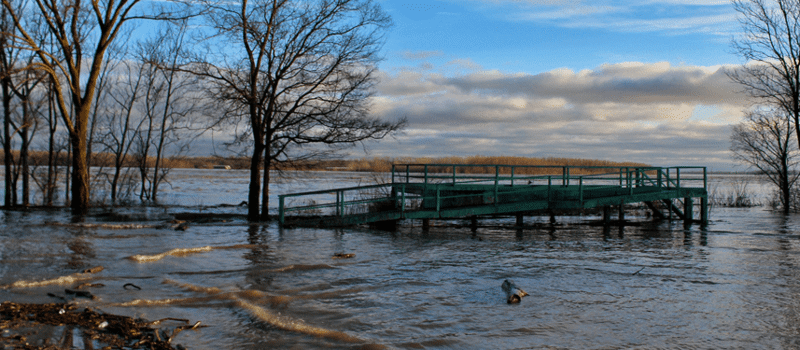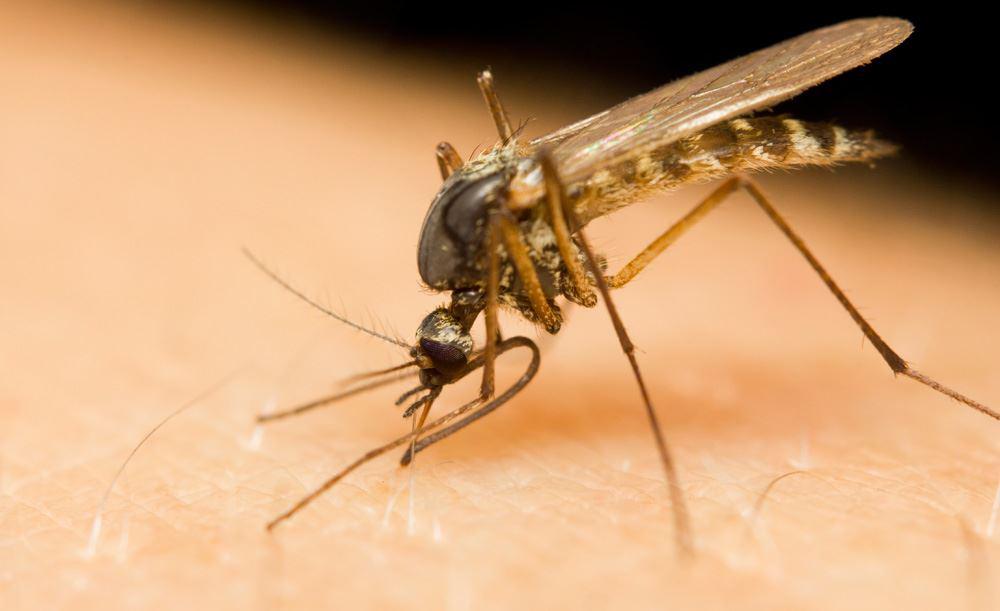Wondering What to Expect If Spring Flooding Predictions are Correct? Mosquitoes. You Should Expect Mosquitoes
Posted by Mosquito Squad
December 20, 2023
It has been a wet winter, and experts are predicting another wet spring. That could mean more mosquitoes this season. Not just any mosquitoes. But floodwater mosquitoes. We have the details of what you can expect from floodwater mosquitoes in the St. Louis area.
There are two broad groups of mosquitoes, permanent water mosquitoes, and floodwater mosquitoes. Permanent water mosquitoes lay their eggs directly on bodies of water, and the population tends to grow throughout the season provided weather conditions are favorable, and food is available. Today we are going to focus a little more on floodwater mosquitoes, as spring floods seem to be much more than likely.
What makes floodwater mosquitoes different from permanent water mosquitoes?
Floodwater mosquitoes are characterized by the locations that they choose to lay their eggs. These mosquitoes choose damp ground, tree holes, artificial containers, any space that will become wet if floodwaters rise. When the mosquito eggs become covered with water, the pests they produce will make their way out into the world within a week or so. Some types of floodwater mosquitoes only lay one brood of eggs while others continue to lay them all season long. The first outbreak is usually at the beginning of spring, as floodwater mosquito eggs laid in winter or the prior year hatch.
What if the waters were not to rise?
Don’t think those little buggers will disappear. The eggs of this particular species can actually remain healthy for up to 5 years, awaiting the perfect conditions.
While most floodwater mosquitoes are of the pest variety, they can be just that, and they can multiply into huge numbers quickly.
Types of Floodwater Mosquitoes in St. Louis:
Psorophora varipes - Hatch in floodwater pools and are usually found in clumps of debris, dead twigs, and leaves left at the waterline. They are persistent, daylight biters.
Psorophora columbiae/ Psorophora cinfinnis - Eggs are laid in soil depressions that become filled with flood rains. They are persistent biters and can be found across the state. They can fly up to 9 miles from where they hatch.
 Culex pipiens- Distributed across the state, this species can carry several diseases, including West Nile, heartworm, and Western Equine Encepahlitis. Eggs are laid in artificial carriers that fill up with floodwaters.
Culex pipiens- Distributed across the state, this species can carry several diseases, including West Nile, heartworm, and Western Equine Encepahlitis. Eggs are laid in artificial carriers that fill up with floodwaters.
Aedes (Aedimorphus) vexans - They bite at dusk, can migrate up to 10 miles, and are found throughout the state.
Aedes (Ochlerotatus) trivittatus - Also found throughout the state, they prefer meadows and swamplands. Day and dusk biters that like open spaces.
Aedes (Ochlerotatus) sticticus - Eggs can be found in floodwater pools of river valleys, whether wooded or open. Eggs can stay viable for up to 3 years. Can be found throughout the state.
As you can see, we have our share of floodwater mosquitoes in Missouri. If rains persist and waters rise, it is possible we will become inundated with them. Gnats are likely to be a heavy pest this year as well, as they love water and warm, humid air.
Gnats fly in swarming clouds, so when they are out, you are likely to be surrounded.
Nothing about this sounds like a pleasant way to spend a spring afternoon, especially after you’ve been stuck inside due to heavy rain. The good news is that it is avoidable.
Our barrier treatment at Mosquito Squad of West St. Louis will rid you of up to 90% of existing mosquitoes and continue for up to three weeks. Even better, if you begin your seasonal treatment plan right away, you can keep them away before they even appear. Spring is here, so there is no time to waste. Schedule your first treatment today, and don’t let the problem of floodwater mosquitoes or gnats be YOUR problem.
